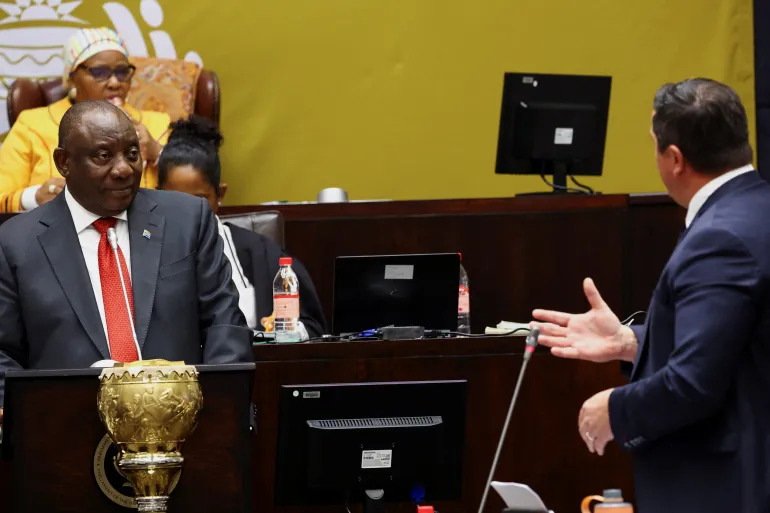News
DA, ANC agree to unity government for South Africa

The African National Congress (ANC) and the Democratic Alliance (DA) have reached a groundbreaking agreement to form a government of national unity in South Africa. This historic collaboration comes after the ANC lost its parliamentary majority for the first time in the election held on May 29. The new coalition, which also includes the Inkatha Freedom Party (IFP) and the Patriotic Alliance (PA), marks a significant shift in South African politics.
Key Points of the Agreement
- Formation of Unity Government:
- The ANC and DA have put aside their longstanding differences to form a coalition government aimed at addressing national challenges and promoting unity.
- Smaller parties, the IFP and the PA, will also participate in the government, adding to its representational breadth.
- Distribution of Roles:
- As part of the agreement, the DA will hold the post of deputy speaker of the national assembly.
- President Cyril Ramaphosa, the current ANC leader, is expected to secure a new term with support from coalition partners.
- Parliamentary Proceedings:
- The newly elected national assembly, convened at a temporary venue in Cape Town due to fire damage to its permanent home, has begun with the swearing-in of lawmakers.
- The assembly is set to elect its speaker, deputy speaker, and the president.
Political and Economic Implications
- Challenges Facing the ANC:
- The ANC’s loss of majority reflects voter dissatisfaction with persistent issues such as poverty, inequality, crime, power cuts, and corruption.
- The decision to collaborate with the DA, known for its pro-business policies, aims to restore confidence and address these issues comprehensively.
- Investor Confidence:
- The coalition is positively received by investors, expecting policy continuity or acceleration of reforms.
- The exclusion of radical parties like the Economic Freedom Fighters (EFF) and uMkhonto we Sizwe (MK) from policymaking is seen as a stabilizing factor.
- Policy Focus:
- The coalition’s draft statement outlines priorities including economic growth, investment, industrialization, job creation, land reform, infrastructure development, structural reforms, and fiscal sustainability.
Reaction and Future Prospects
- Public and Political Reactions:
- The new coalition government has been met with cautious optimism, as it represents a significant departure from past antagonisms.
- The IFP’s involvement may help garner support among the ANC’s voter base, particularly in Zulu regions.
- Exclusion and Opposition:
- MK, led by former President Jacob Zuma, has rejected the election results and is boycotting parliament, claiming vote-rigging. The constitutional court dismissed these claims.
- Other parties have accepted the results, emphasizing the election’s fairness.
- Long-term Impact:
- This coalition has the potential to redefine South African politics by fostering cooperation across party lines.
- Success in addressing the country’s socio-economic challenges could set a precedent for future governance models in South Africa.
Conclusion
The agreement between the ANC and DA to form a government of national unity signifies a new chapter in South Africa’s political landscape. By focusing on common goals and inclusive governance, this coalition aims to stabilize the country and drive comprehensive reforms. The coming months will be crucial in determining the effectiveness and longevity of this unprecedented political alliance.















